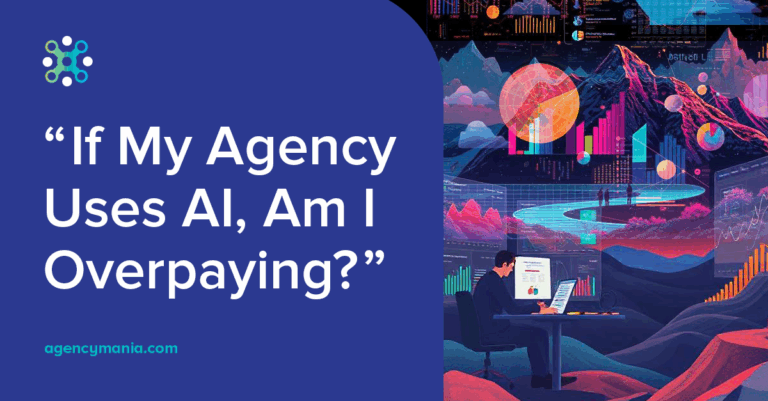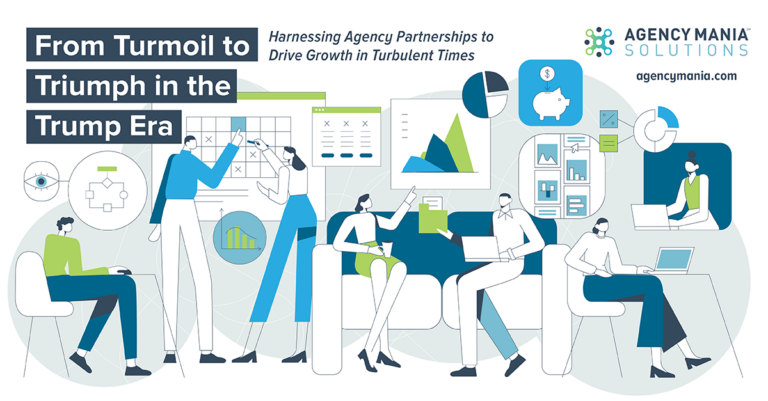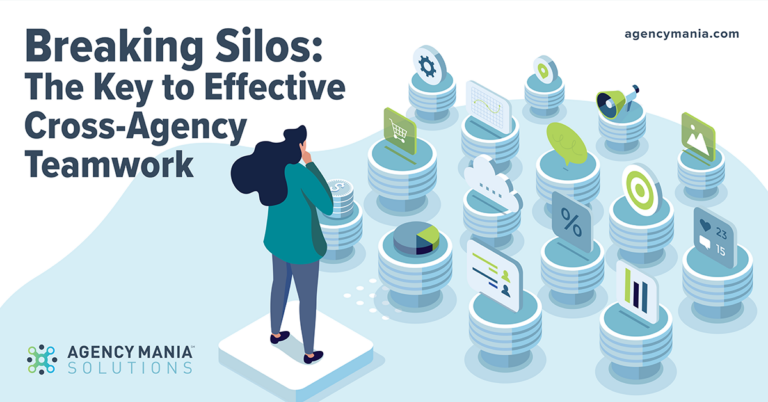How to Drive your Client Mad
By Bruno Gralpois
Author/Speaker, Thought-provocateur, Client/Agency Guru, Entrepreneur, Innovator
Download a print-friendly version here
 In How to Drive Your Agency Crazy, I shared 20 ways brand advertisers drive their agencies crazy, and in the process, sabotage their own efforts. Experienced advertisers know better; they know how to turn these agency relationships into productive partnerships that deliver outstanding work. However, it takes two to tango. Needless to say, agencies also play an important role in cultivating successful or failed relationships. Sorry agencies, you are not off the hook. Yes, agencies can drive clients equally mad, and they often do. Let’s take a closer look at the things agencies say and do that undermine a sense of true partnership, and what can be done about it:
In How to Drive Your Agency Crazy, I shared 20 ways brand advertisers drive their agencies crazy, and in the process, sabotage their own efforts. Experienced advertisers know better; they know how to turn these agency relationships into productive partnerships that deliver outstanding work. However, it takes two to tango. Needless to say, agencies also play an important role in cultivating successful or failed relationships. Sorry agencies, you are not off the hook. Yes, agencies can drive clients equally mad, and they often do. Let’s take a closer look at the things agencies say and do that undermine a sense of true partnership, and what can be done about it:
#1: They say they can do it all
Agencies have the tendency to claim they can do it all when an opportunity arises, for fear of losing a new business opportunity. By doing so, they over-exaggerate the true capabilities they have and set themselves up for failure when the work suffers down the road. Advertisers have no choice but to challenge their agencies as a normal course of action to fully understand what they can really do well. Agencies should always be clear about what they do and don’t do. Expect clients to require demonstration of core capabilities, conduct pilots, and to set very clear parameters for the type of work agencies are officially approved to do on their behalf after they prove themselves.
#2: They say “yes” to the client when they mean “no”
The agency business is a service industry. As is typical in service industries, the tendency is to please customers at all cost. That cost is often too high, frankly. Clients value agency partners who know how to say “no” if they disagree with the approach, or believe it is not in the best interest of their client. It takes integrity and courage, but then again, as strategic advisors, this is what is expected of agencies.
#3: They bring five people to a meeting and only two participate
Have you ever attended a meeting in a room full of people that do not seem to have a clear role? Rather than taking accountability for debriefing other team members accurately and in a timely manner, some agencies default to bring everyone that might be involved in a project. It turns out to be very expensive for clients, and they often wonder why so many attended when so few actively participated. Clients and agencies should set clear guidelines for travel and meetings so they can work together efficiently.
#4: They don’t work well with other roster agencies
Advertisers expect their roster agencies to work together collaboratively. Everyone seems to say the right things when they commit to share information and collaborate. Yet the reality is often a series of territorial issues with agencies more preoccupied with protecting their turf than looking for ways to best support their client efforts. They are not to blame at times. Advertisers should clarify the roles and scope of their agencies, so territorial concerns are minimized and the focus is on the work itself.
#5: They propose brilliant ideas that cannot be executed
Agencies thrive on coming up with new, breakthrough ideas that clients love and that earn them awards at shows. However, their out-of-the-box ideas are not always grounded in real, pragmatic execution. The budget requirements are too great, the scalability of the idea is not realistic, or there are various brand constraints or regulatory restrictions that get in the way. Agencies must concentrate their efforts on reasonable, actionable recommendations. Clients can also provide clear parameters in the briefing process to minimize potential waste.
#6: They fail to consistently use industry insight and data
There are many aspects of what agencies do that are based on experience and instinct. Some agencies regularly shoot from the hip. After all, this is a big part of what advertisers are seeking from agencies. Yet agency recommendations must be based on meaningful consumer insight and research. W. Edwards Deming once said, “Without data, you’re just another person with an opinion.” An opinion informed by data is simply a better opinion.
#7: They don’t use client budgets conscientiously
And they should. Advertisers look to their agencies to be fiscally accountable, steering their budget and exploring ways to drive cost efficiencies on their behalf. How often are agencies coming back to their clients with recommendations on how to drive costs down? Not often enough, most clients would agree. Advertisers should provide feedback to their agencies on how good they are at providing financial stewardship and being accountable to the resources made at their disposal.
#8: They are fearful of providing honest and direct feedback
If they are challenged to say “no,” one can only imagine how likely they are to provide honest, straight forward feedback to their clients. We see it in 360 performance evaluation surveys where some agencies are naturally shy to provide feedback. The fear is quite legitimate. Some clients don’t have the backbone or appetite to receive feedback and act based on it.
#9: They want opportunities to earn more without risking much
Incentive-based compensation is common in large client/agency agreements. Agencies eagerly consider opportunities to earn more, and that’s a very legitimate expectation. However, when facing the potential downside associated with the upside they seek, the enthusiasm softens. The risk must be proportional to the opportunity, and agencies must be willing to take it on. Clients must also be reasonable by balancing the two carefully.
#10: They aren’t fully transparent but expect to be trusted
Trust is the cornerstone of relationship building. Recent issues in media and production have exposed business practices in the agency world that often lack adequate transparency. Agencies expect to be trusted. Yet trust is earned, not given. Providing full transparency is a critical first step in building a trustworthy relationship. Transparency is a two-way street and clients must also be transparent with agencies.
#11: They complain about profits but fail to demonstrate value
From experience, I would say that most advertisers are willing to pay more when they get demonstrated value from their agencies. Many agencies often complain about the lack of profitability of their client account, yet too little of the focus is on finding ways to deliver greater, sustained value to clients. Focusing on value is the only way to address profitability concerns over time.
#12: They let egos impede sound business decisions
If you have ever participated in creative review, you know how much passion the creative team puts into the work they do. That’s all good. But egos can also get in the way of rationale business judgement. Frankly, it’s very difficult to remain impartial and unbiased when reviewing creative work. Agencies and clients must acknowledge that fact and produce the work that best supports the marketing objectives.
#13: They pitch analytics but don’t deliver actionable results
Advertisers can’t go through a pitch presentation without extensive focus on analytics capabilities. Nothing wrong that—to the contrary. But when it’s time to operationalize these ideas, agencies often fail to deliver strong analytics and actionable campaign results. It’s either too little, too late, or too much data, without meaningful insights. The agency should set realistic expectations and deliver results that clients can act upon.
#14: They often take work and relationships for granted
Landing a new client often feels like a marathon for agencies. Once they win the pitch, the real work actually starts. A few years into the relationship, there is a natural tendency to take client relationships for granted. Agencies don’t push the envelope as aggressively and become complacent over time. Regular performance feedback ensures expectations are clear and met.
#15: They accept poor client scopes and briefings
Poor briefs lead to mediocre work. Clients often rush through new assignments and do not provide the necessary guidance agencies need to deliver great work. Too many agencies accept this as their everyday reality, trying to compromise and make tradeoffs, which ultimately lead to the demise of the relationship. Don’t allow for work to start without strong scopes and clear and comprehensive briefs.
#16: They can’t train their ever-changing staff fast enough
Agencies have a very tough time attracting and keeping talent. It means the agency is a revolving door and new folks often join the client team without proper training or onboarding. When agencies fail to communicate these changes to the clients, it doesn’t look good. Clients don’t always make it easy for new agency personnel to get trained on the basics of the partnership (the company’s overview, brand standards, operating guidelines, etc.), requiring the agency’s account team to be proactive in sharing the necessary details to get new talent up to speed.
#17: Their CFO tells the client their account is not profitable
Has any client ever met an agency CFO who didn’t complain about the lack of profitability on the account? I’m not sure—it appears that part of the negotiation process at agencies is to focus on poor guidance, scope creep and budget reductions. There is no doubt that some agencies are not getting the return that they deserve or need to sustain a healthy business. Agencies must also be transparent about their level of profitability so clients and agencies can find a fair and equitable balance between being competitive and being reasonable.
#18: They use fancy terms that don’t mean much
To impress clients, agencies often use fancy terms to describe their approach or their offering, which it turns out, might be rather conventional. They are masters of rejuvenating existing ideas and concepts and serving them up as new capabilities. By doing so, they can easily confuse advertisers who have to decipher what they say to understand what they are buying, instead of spending time and energy to bring the ideas to life operationally.
#19: They don’t embed themselves in the client’s organization
Many client/agency relationships happen to be remote, as the main agency office might be hours away from the client headquarters office, forcing the teams to rely on technology to communicate. By failing to spend adequate time embedded within client teams, agencies miss out on the opportunity to learn and experience the business on a daily basis, lessening their ability to react in a timely manner to client needs. Some agencies are co-locating staff at client offices to address this concern, and advertisers often have “agency days” during the week.
#20: They don’t behave as an extension of their client teams
Advertisers face growing challenges and pressure points internally. When their agencies come short of showing a level of commitment, dedication, and accountability on par with internal teams, they lose credibility in the eyes of their clients, creating a divide. Agencies that do behave as an extension of their client teams often blend in in such a way that it’s even hard to tell who is whom in a meeting. Then and only then, the agency and client team are behaving as one.
Poor agency practices contribute to sub-optimized client relationships and vice versa. There are many ways agencies can drive their client mad. By acknowledging what those are, we can start driving positive change and help client/agency partnerships flourish. Don’t get mad. Don’t get even, either. Whether you represent the client or an agency, lead by example.
Download a print-friendly version here







